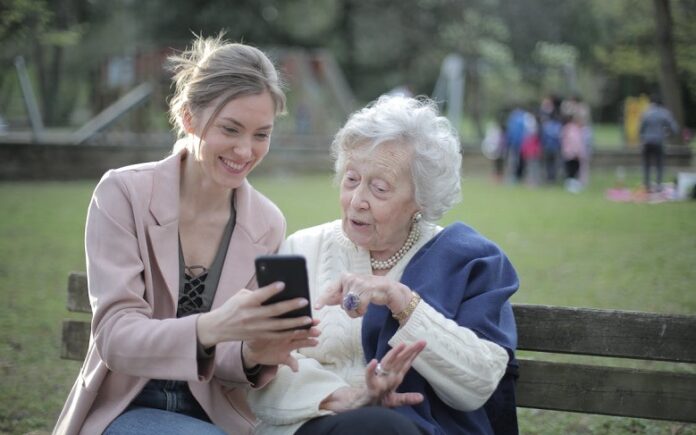As our parents and grandparents get older, it is important to understand that their health needs change over the years. As a result, they face unique challenges as they age, which will require special attention from family members and caregivers. It can often be difficult to navigate this transition, but with the right knowledge of care strategies for elderly individuals, you can make sure your loved one’s well-being is taken into consideration.
Today, we will discuss some of the tips for ensuring good health for seniors so that they stay physically and mentally well during challenging times. From organized activities like art classes to eating nutritious meals on a regular basis, there are many different ways in which you can play an active role in keeping your elderly loved ones healthy throughout their life journey ahead.
1. Fall Prevention:
Table of Contents
If your elder is experiencing difficulty with mobility, it is important to address this issue promptly. This can include making modifications to their home, such as installing grab bars and handrails or using assistive devices.
In certain situations, a nursing home can provide exceptional support for individuals with mobility challenges. They offer a range of top-notch facilities and equipment, including wheelchairs, walkers, and secure handrails, ensuring a safe and comfortable environment.
We do recognize that cases of nursing home abuse do occur. In such unfortunate situations, it is important to seek legal assistance from nursing home abuse lawyers who can help protect the rights and well-being of your loved one.
If your loved one has been diagnosed with a health condition that impacts their mobility, like arthritis or Parkinson’s disease, ensuring they have access to continuous care and physical therapy becomes crucial. This is where the invaluable support and expertise offered by a nursing home can truly make a difference.
2. Regular Health Check-ups:
One of the most important aspects of maintaining good health for elderly individuals is regular health check-ups. As they age, their bodies become more vulnerable to illnesses and chronic conditions. Therefore, it is crucial to schedule regular visits with their primary healthcare provider to monitor any changes in their health and address any potential issues early on.
During these check-ups, certain screenings and tests can also be done to catch any health concerns before they progress. This includes screenings for conditions such as diabetes, heart disease, and cancer.
3. Quality Sleep:
If your elderly loved one is having trouble sleeping, it can impact their overall health and well-being. As they age, their sleep patterns tend to change and may require some additional support. Make sure their bedroom environment is conducive to good rest by keeping the room quiet, dark, and cool.
Encourage them to maintain a consistent bedtime routine and limit caffeine consumption late in the day. If they are experiencing sleep apnea or other sleep disorders, consulting with a doctor and receiving appropriate treatment can greatly improve their sleep quality.
4. Balanced Nutrition:
If your elderly loved one is still able to prepare meals for themselves, encourage them to eat a balanced and nutritious diet. This can include incorporating fruits, vegetables, lean proteins, whole grains, and healthy fats in their daily meals. Sugary drinks and limiting processed foods can also have a positive effect on their health.
In cases where they have difficulty preparing meals on their own, consider enlisting the help of home health aides or meal delivery services. This ensures that they are still receiving proper nutrition, even if they cannot prepare meals themselves. Additionally, consult with a registered dietician to create a tailored meal plan based on their dietary needs.
5. Social and Mental Stimulation:
Aside from physical health, it is important to also focus on your loved one’s social and mental well-being. Many seniors often experience loneliness and isolation, which can have a negative impact on their mental health. Encourage them to participate in social activities such as book clubs, art classes, or community events.
Engaging in mentally stimulating activities like puzzles, crossword puzzles, and reading can also help keep their minds sharp and improve cognitive function. Spending quality time with them, whether it’s through phone calls or in-person visits, can also have a positive impact on their emotional well-being.
6. Medication Management:
It is common for seniors to have multiple medications prescribed to them, which can be overwhelming to manage. To ensure they are taking the correct dosage at the right time, consider creating a medication schedule or using pill organizers. Additionally, make sure they have regular medication reviews with their healthcare provider to monitor any potential interactions or side effects.
Furthermore, it is important to educate yourself and your loved one about their medications, including potential side effects and how they should be taken. This can help prevent any medication errors and ensure that they are receiving the best possible care.
7. Physical Activity:
Keeping active is crucial for maintaining good health in elderly individuals. Regular physical activity can improve muscle strength, cardiovascular health, and overall mobility. It can also help prevent or oversee chronic conditions such as diabetes, osteoporosis, and heart disease.
Motivate your elders to engage in activities that they appreciate and are suitable for their abilities. This can include gentle walks, chair exercises, or even gardening. Staying physically active not only promotes good health but also boosts mood and overall well-being.
However, it is important to consult with their healthcare provider before starting a new exercise routine, especially if they have pre-existing health conditions. A professional can offer guidance on what types of activities are safe and appropriate for their individual needs.
Conclusion
It is important to remember that caring for aging loved ones is a team effort and requires everyone to communicate regularly. By following these tips, you can ensure that your elderly family members are staying safe and healthy in their later years.
Make sure you also find the time to look after yourself too. Remember not to neglect your own health while you are providing care for the elderly. Check-in with your parents or grandparents and make sure they have the right support and resources they need from you. Taking steps now will help ensure that they enjoy a healthier and fuller life as they continue to age gracefully.











